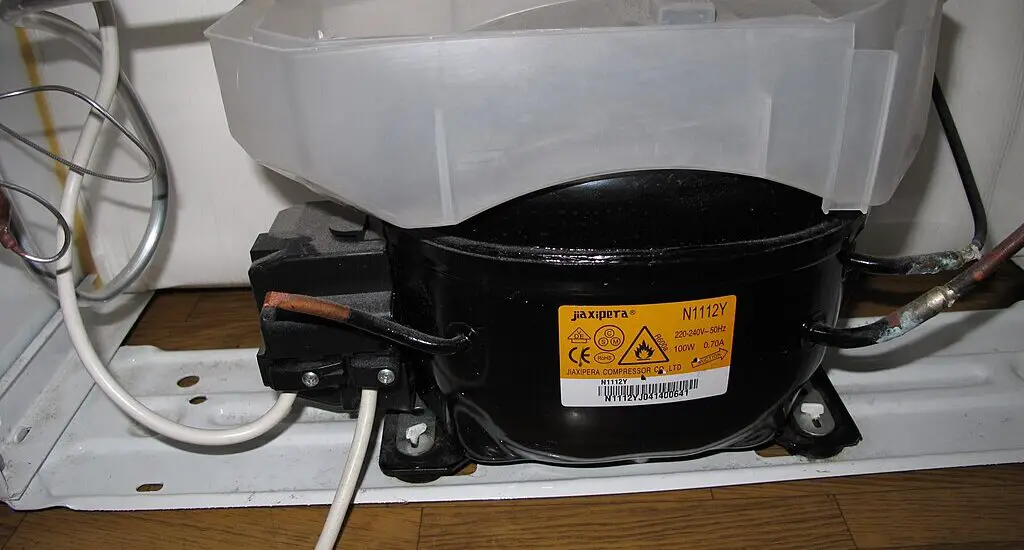Which type of compressor is best for refrigerators? To answer this question, this guide dissects each compressor type, weighing their pros and cons, to help you make an informed decision.

Table of Contents
Which Type of Compressor is Best for Refrigerator?
In the domain of refrigeration, it’s essential to understand the nuances of the components to select the optimal solution for your needs. Among these, the compressor is pivotal, being the driving force behind your refrigerator’s cooling mechanism. Let’s break down the two primary compressor types and their suitability for different refrigerator settings.
Reciprocating Compressor: The Household Favorite
Often visualized as the ‘workhorse’ of household refrigeration, the reciprocating compressor operates with a piston mechanism. As the piston moves back and forth inside its cylinder, it compresses the refrigerant, generating the cooling effect.
This type of compressor has garnered widespread preference for several reasons:
Cost-Effectiveness: Generally more affordable, making it an attractive choice for household budgets.
Durability: Built robustly, it tends to have a longer lifespan with minimal maintenance, ensuring that you don’t have to constantly worry about breakdowns.
Optimal for Smaller Systems: Its design and operation are streamlined for standard household refrigerators, efficiently meeting the cooling requirements of domestic settings.
However, it’s not without its drawbacks. The primary concern with reciprocating compressors is the noise. The piston mechanism can produce a hum or buzz that might be discernible in quiet settings.
Rotary Compressor: The Commercial Powerhouse
The rotary compressor, on the other hand, employs a rotor-based mechanism. Instead of the piston’s back-and-forth action, this compressor uses two rotors that rotate in tandem to compress the refrigerant. This coordinated spinning action is what facilitates cooling in larger systems.
Why might one opt for a rotary compressor?
Quiet Operation: The absence of a piston mechanism ensures that rotary compressors operate more silently, making them ideal for environments where noise is a concern.
Suited for Larger Systems: Their design and operational capabilities are tailored for bigger refrigeration setups, including commercial environments.
Yet, the rotary compressor might not be everyone’s cup of tea. They generally come with a heftier price tag, and for standard domestic needs, they might offer more power than necessary, potentially leading to inefficiencies in energy consumption.
Check out these other articles…
Causes of Refrigerator Compressor Overheating: Easy Guide
5 Signs of Refrigerator Compressor Failure: Ultimate Guide
RV Refrigerator Compressor Not Coming On: Easy Steps to Fix
Everchill RV Refrigerator Compressor Not Working: How to Fix
Norcold RV Refrigerator Compressor Not Turning On: Easy Fix
Factors to Consider in Your Compressor Selection
Having delved into the specifics of each compressor type, it’s imperative to consider several other factors before making your final decision. Think of it as buying a vehicle; while the engine type (like our compressor) is crucial, you’d also consider aspects like fuel efficiency, safety features, and brand reputation. Similarly, when selecting a compressor for your refrigerator:
Energy Efficiency: Assess the energy consumption ratings. An efficient compressor, even if slightly pricier, can lead to significant savings on electricity bills in the long run.
Noise Levels: Consider the environment in which the refrigerator will be placed. If it’s close to living or sleeping areas, you might want to opt for a quieter option.
Size and Cooling Needs: Match the compressor’s capabilities with the size of the refrigerator and the cooling requirements. Overshooting can lead to unnecessary energy consumption, while undershooting can result in inadequate cooling.
Maintenance and Lifespan: Check reviews and manufacturer details about the expected lifespan and maintenance needs. Some compressors, though cheaper initially, might require frequent servicing, leading to higher long-term costs.
Armed with this knowledge, you’re now equipped to make an informed decision, ensuring that your chosen compressor aligns with your needs, preferences, and budget.
